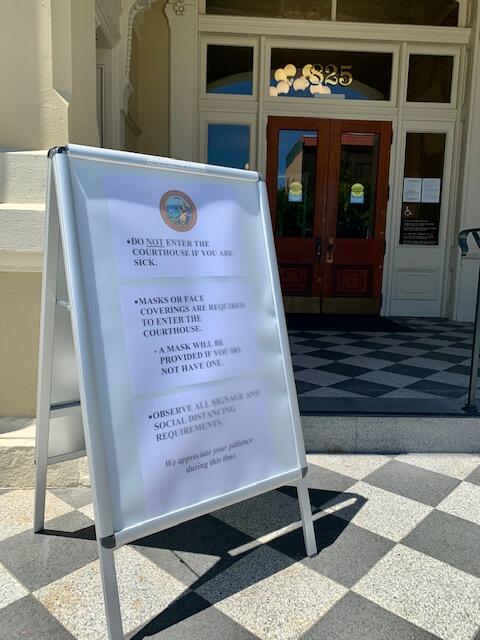Jury Service Begins for Trials Delayed by COVID-19 Pandemic
Normally around nine million Californians are summoned to jury service each year—but not this year.
Delayed by COVID-19 for nearly three months in most parts of the state, the majority of California’s trial courts are just beginning to hold jury trials again or plan to start in the coming weeks.
Depending on local health requirements, building configurations, and the amount of jurors needed, superior courts are using a variety of strategies to ensure the courthouse is safe for people reporting for jury duty. Safety measures include:
- Remote completion of juror questionnaires and staggering juror reporting times
- Providing screening, facemasks, hand sanitizer, and extra cleaning—particularly high-touch surfaces
- Ensuring social distancing in courtrooms, jury assembly areas, elevators, and restrooms
- Shortening the time for verbal voir dire or questioning of jurors
Public Service Announcements from Local Courts:
|
Los Angeles County |
Mendocino County |
San Bernardino County |
 Tulare County |
Sacramento County
|
Some superior courts, like those in Merced, Placer, and Tulare counties, are asking prospective jurors to report for jury service at local gymnasiums, auditoriums, or other large spaces outside of the courthouse. These venues make it easier to conduct the initial juror check-in and selection process. In addition, courts instruct those who feel ill or who are in a sensitive group due to age or pre-existing health condition to contact the court to request postponement of jury service.
For more information on your local superior court's procedures and services, visit California court websites.
Judicial Council Helps Courts With COVID-19-Related Costs and Strategies
The Judicial Council’s Trial Court Facility Modification Advisory Committee designated $5 million in statewide maintenance funds to reimburse courts for installing temporary safe distancing measures, which include items such as signage, reconfiguration of physical space, and physical barriers between courthouse occupants.
In addition, a council working group of 23 volunteer judges and court executives released a 75-page resource guide to help the state’s trial courts with their pandemic continuity of operations, including jury service. The guide provides a range of considerations and approaches courts can draw from based on capacity and local health and safety regulations.








